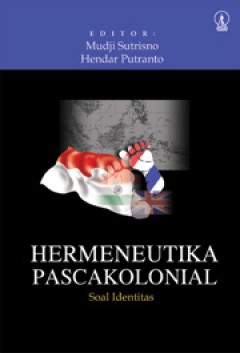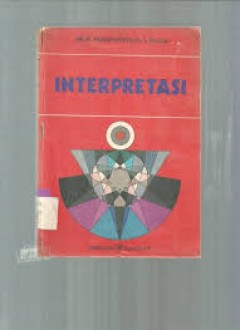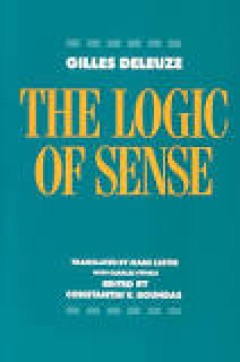Ditapis dengan

The Nature of Belief
- Edisi
- -
- ISBN/ISSN
- -
- Deskripsi Fisik
- 336 pg.; 20,5 cm.
- Judul Seri
- -
- No. Panggil
- 121.7 DAR n
- Edisi
- -
- ISBN/ISSN
- -
- Deskripsi Fisik
- 336 pg.; 20,5 cm.
- Judul Seri
- -
- No. Panggil
- 121.7 DAR n

Potret Siapakah Aku?
Buku ini menyajikan pembahasan seputar permasalahan jatidiri manusia yang difokuskan pada jatidiri yang dapat menjadi bahan refleksi setiap orang yang ingin mendalami dirinya yang sebenarnya. Bahasan mengenai jatidiri di dalam buku ini berfungsi sebagai tawaran yang diharapkan dapat membantu pembaca untuk memahami orang lain dan terutama diri sendiri, serta menentukan sikap di dalam memaknai hi…
- Edisi
- -
- ISBN/ISSN
- 9789792125702
- Deskripsi Fisik
- 144 hlm.; 20 cm.
- Judul Seri
- -
- No. Panggil
- 126 HAD p

Introduction to Hermeneutics
- Edisi
- -
- ISBN/ISSN
- -
- Deskripsi Fisik
- 125 pg.; 20,5 cm.
- Judul Seri
- -
- No. Panggil
- 121.686 MAR i
- Edisi
- -
- ISBN/ISSN
- -
- Deskripsi Fisik
- 125 pg.; 20,5 cm.
- Judul Seri
- -
- No. Panggil
- 121.686 MAR i

Serbi-serbi Semiotika
Dewasa ini literatur tentang semiotika yang berbahasa Indonesia ssngat terbatas. Bunga rampai semiotika yang sederhana ini dipersembahkan sebagai usaha mengisi kekurangan tersebut. Isinya merupakan terjemahan dan saduran tulisan yang aslinya berbahasa Belanda, Inggris, Jerman, dan Prancis. Pemilihannya didasarkan atas keinginan agar aliran-aliran utama di dalam semiotika terwakili. Pada buku…
- Edisi
- -
- ISBN/ISSN
- 9795113704
- Deskripsi Fisik
- x + 128 hlm.; 21 cm.
- Judul Seri
- -
- No. Panggil
- 121.68 SUD s

Hermeneutika Pascakolonial: Soal Identitas
Identitas kultural bukanlah sesuatu yang mudah dicari, apalagi ditemukan; jika menjadi sumber konflik solusinya pun amat sukar. 12 artikel dalam buku ini memaparkan realitas tersebut, juga kompleksitas upaya pencarian dan perumusan diri secara kultural dalam arus sejarah bangsa yang tak henti mengalir ini.
- Edisi
- -
- ISBN/ISSN
- 9792110135
- Deskripsi Fisik
- xii + 182 hlm.; 22,5 cm.
- Judul Seri
- -
- No. Panggil
- 121.68 HER h

Einstein Aja Gak Tau!: Penjelasan Ilmiah Tentang Peristiwa Sehari-hari
Jika kita mengangkut ribuan merpati dalam sebuah trailer, apakah bebannya lebih ringan jika burung-burung itu terus beterbangan? temukan jawabannya dibuku ini :)
- Edisi
- -
- ISBN/ISSN
- 9792202919
- Deskripsi Fisik
- xii + 267 hlm.: ils.; 23 cm.
- Judul Seri
- -
- No. Panggil
- 121 WOL e

Metaphorically Speaking
- Edisi
- -
- ISBN/ISSN
- 1575861593
- Deskripsi Fisik
- ix + 241 pg.; 23 cm.
- Judul Seri
- -
- No. Panggil
- 121.68 NOG m
- Edisi
- -
- ISBN/ISSN
- 1575861593
- Deskripsi Fisik
- ix + 241 pg.; 23 cm.
- Judul Seri
- -
- No. Panggil
- 121.68 NOG m

Interpretasi: Beberapa Catatan Pendekatan Filsafatinya
- Edisi
- -
- ISBN/ISSN
- 9794240699
- Deskripsi Fisik
- xi + 199 hlm.; 21 cm.
- Judul Seri
- -
- No. Panggil
- 121.68 POE i
- Edisi
- -
- ISBN/ISSN
- 9794240699
- Deskripsi Fisik
- xi + 199 hlm.; 21 cm.
- Judul Seri
- -
- No. Panggil
- 121.68 POE i
Hermeneutika. Pengantar Teori-teori Pemahaman Kontemporer: Wacana Analitik, P…
Secara etimologis, kata ‘hermeneutik’ atau ‘hermeneutika’ berasal dari bahasa Inggris hermeneutics. Kata hermeneutics sendiri berasal dari bahasa Yunani hermeneuo yang berarti ‘mengungkapkan pikiran-pikiran seseorang dalam kata-kata’ atau hermeneuein yang berarti ‘menafsirkan’ dan hermeneia yang berarti ‘penafsiran’. Kata hermeneuo juga bermakna ‘menerjemahkan’ atau ‘b…
- Edisi
- -
- ISBN/ISSN
- 97995512187
- Deskripsi Fisik
- 260 hlm.; 21 cm.
- Judul Seri
- -
- No. Panggil
- 121.68 HOW h

The Logic of Sense
Considered one of the most important works of one of France's foremost philosophers, and long-awaited in English, The Logic of Sense begins with an extended exegesis of Lewis Carroll's Alice in Wonderland. Considering stoicism, language, games, sexuality, schizophrenia, and literature, Deleuze determines the status of meaning and meaninglessness, and seeks the 'place' where sense and nonsense c…
- Edisi
- -
- ISBN/ISSN
- 0485300982
- Deskripsi Fisik
- xiv + 393 pg.; 23,5 cm.
- Judul Seri
- -
- No. Panggil
- 121.68 DEl l
 Karya Umum
Karya Umum  Filsafat
Filsafat  Agama
Agama  Ilmu-ilmu Sosial
Ilmu-ilmu Sosial  Bahasa
Bahasa  Ilmu-ilmu Murni
Ilmu-ilmu Murni  Ilmu-ilmu Terapan
Ilmu-ilmu Terapan  Kesenian, Hiburan, dan Olahraga
Kesenian, Hiburan, dan Olahraga  Kesusastraan
Kesusastraan  Geografi dan Sejarah
Geografi dan Sejarah